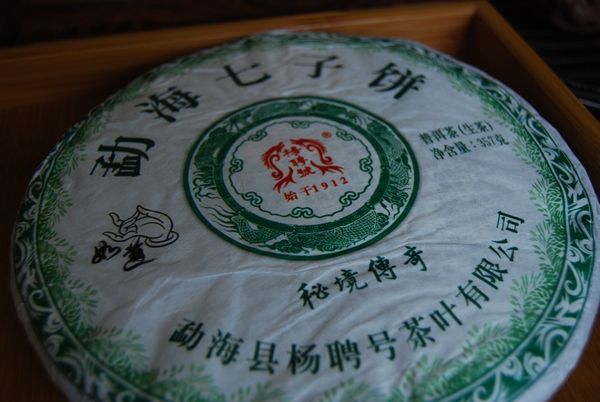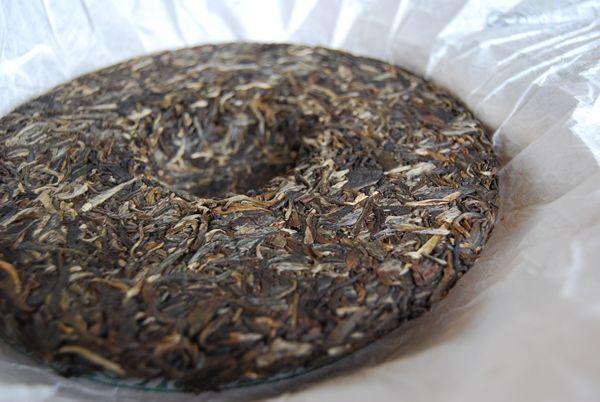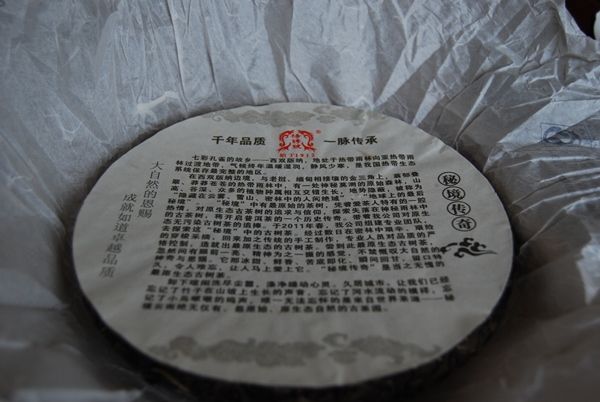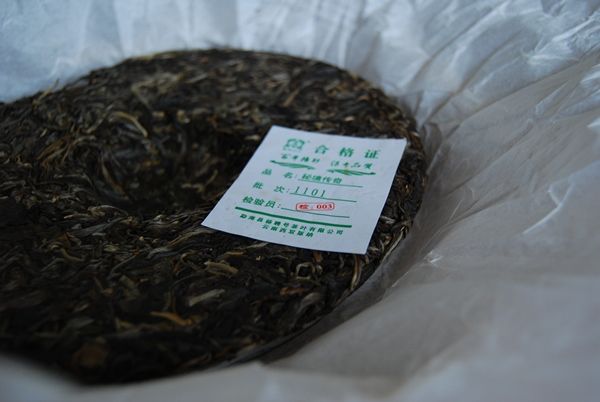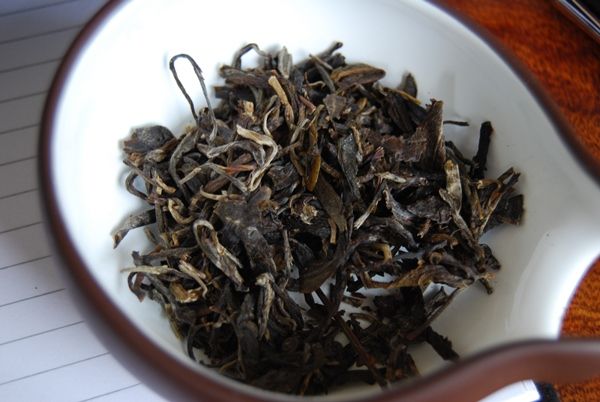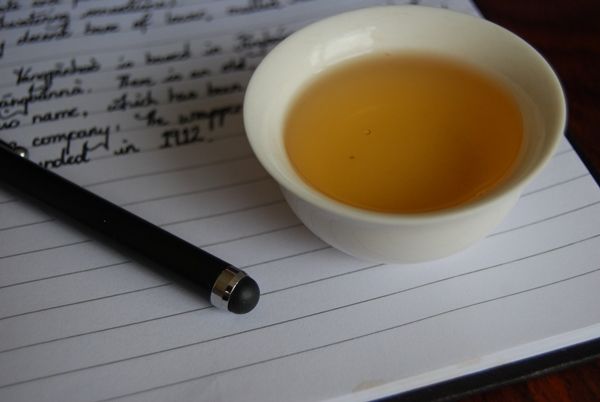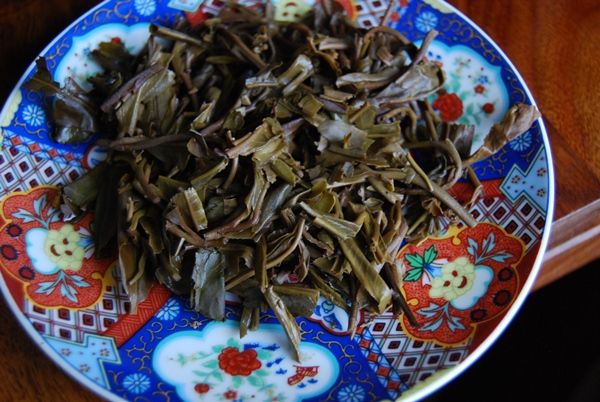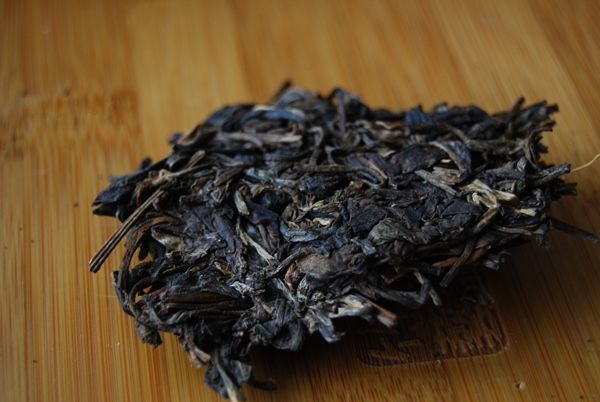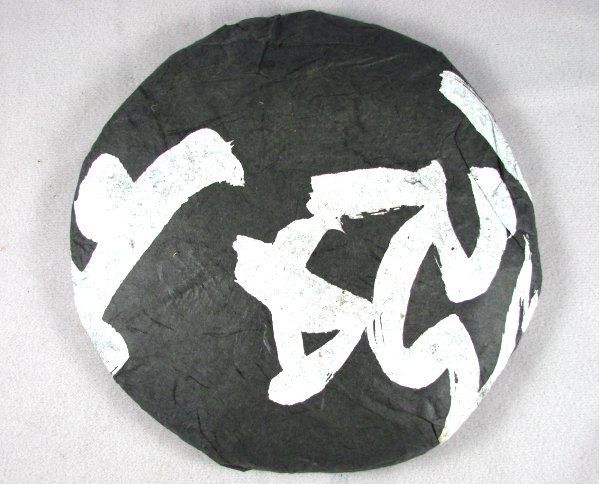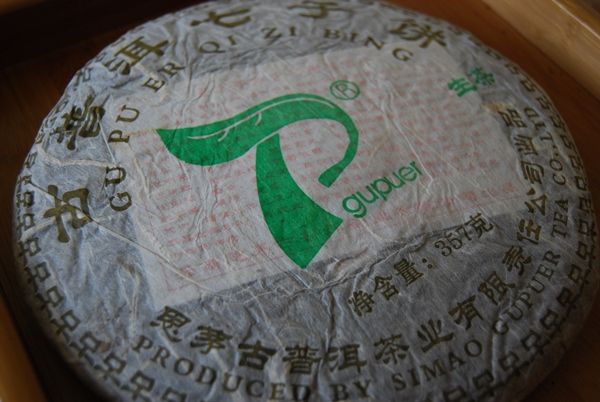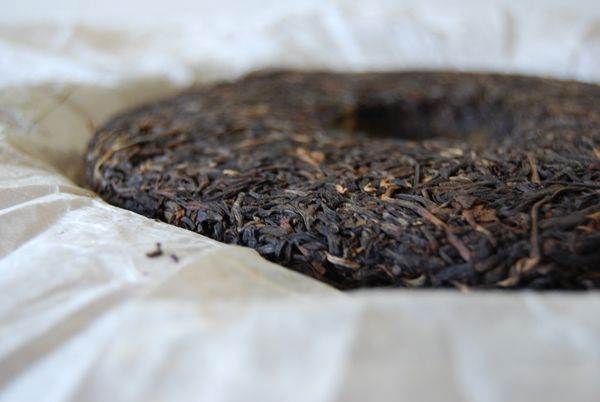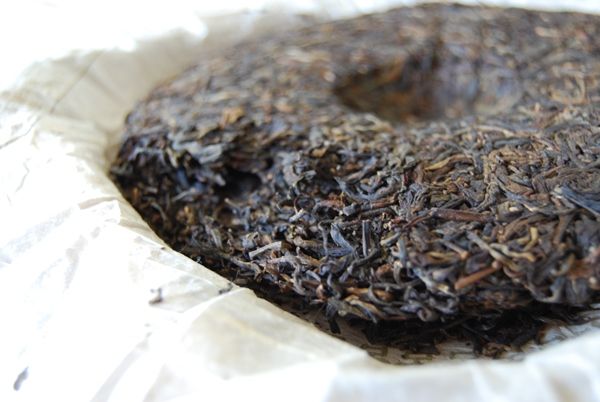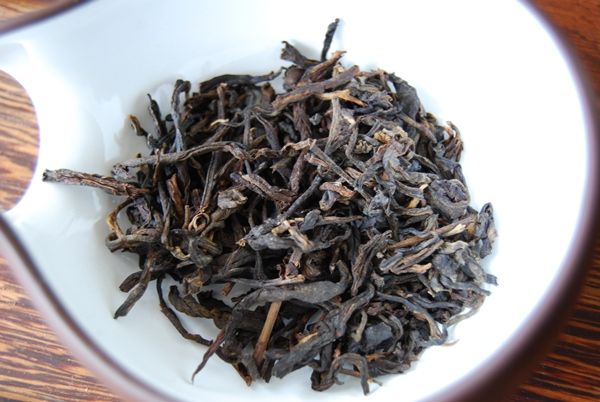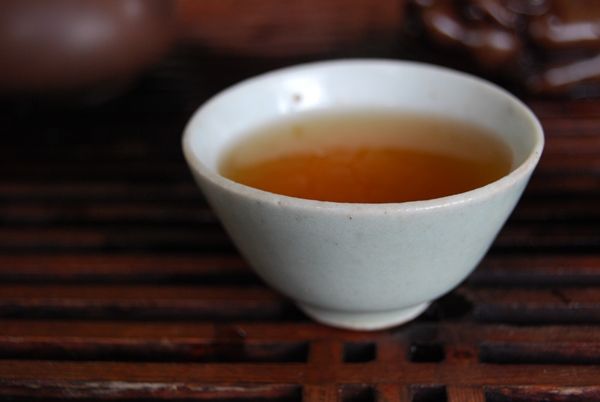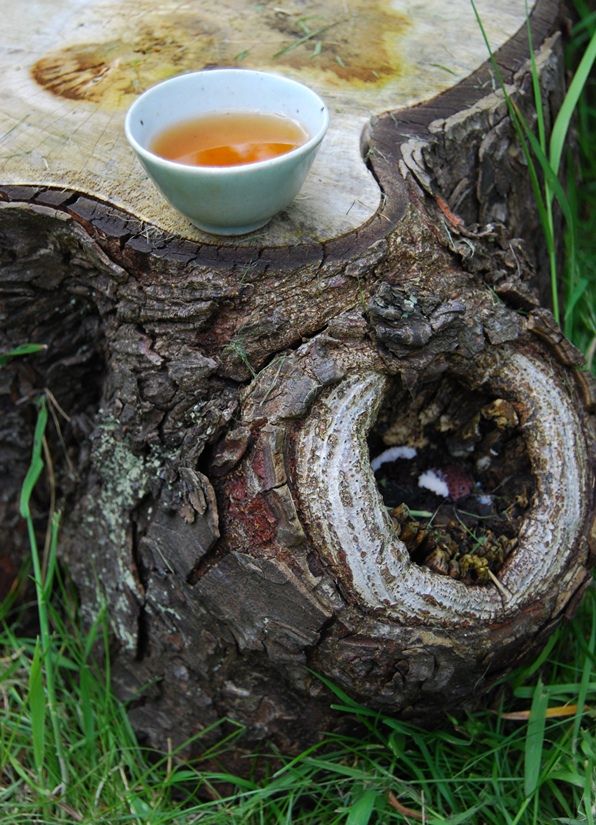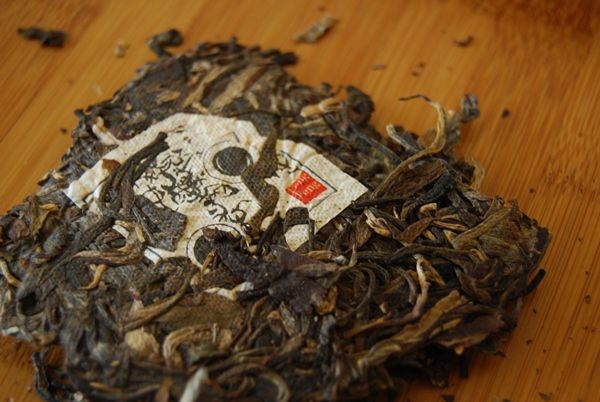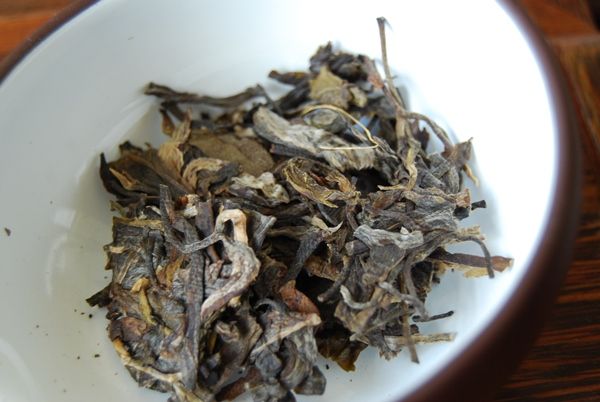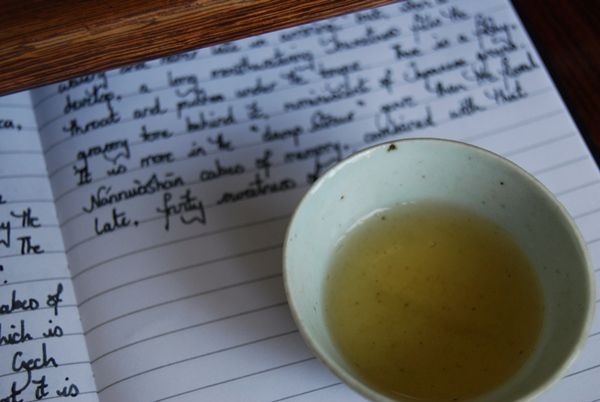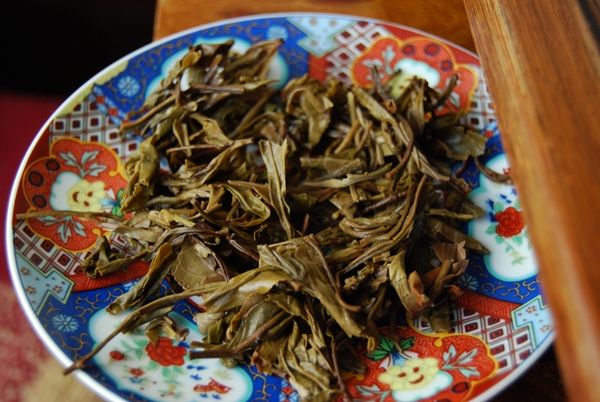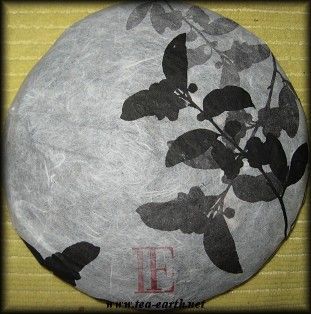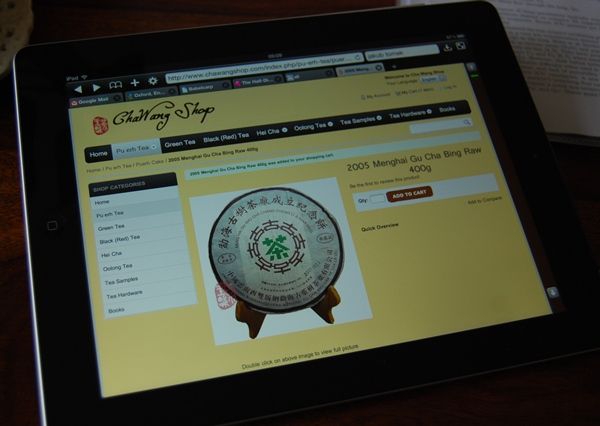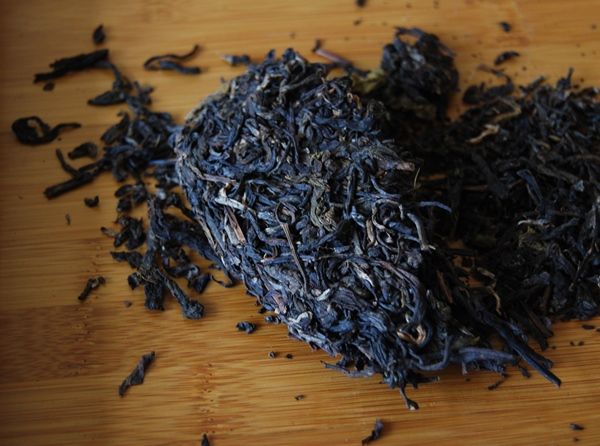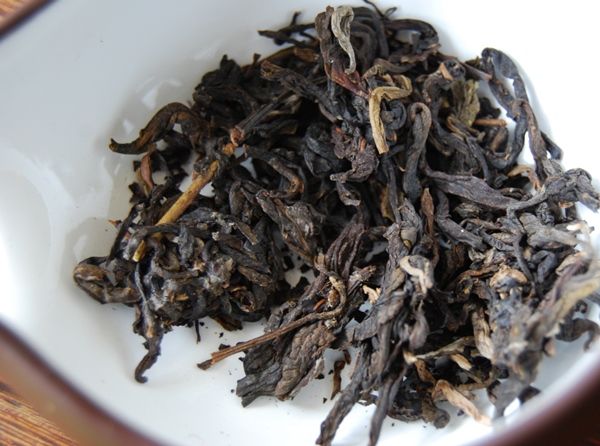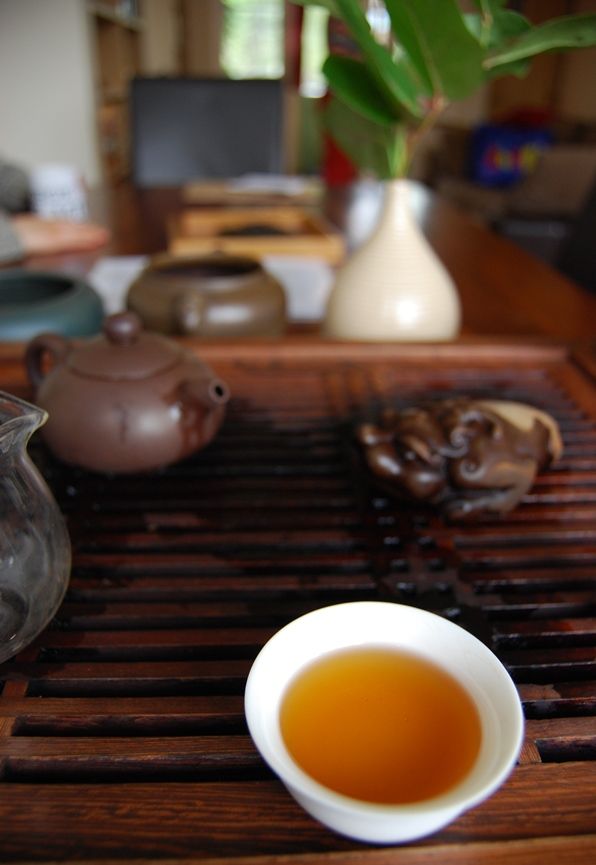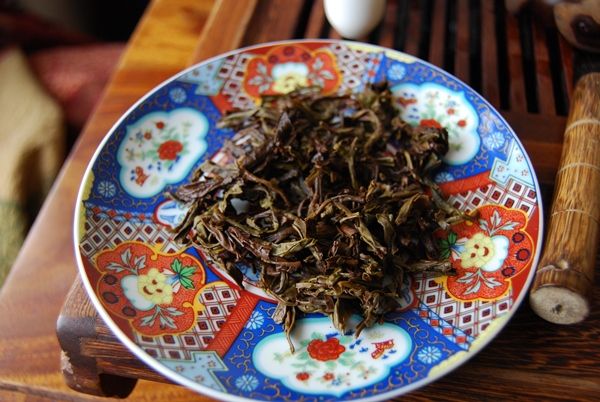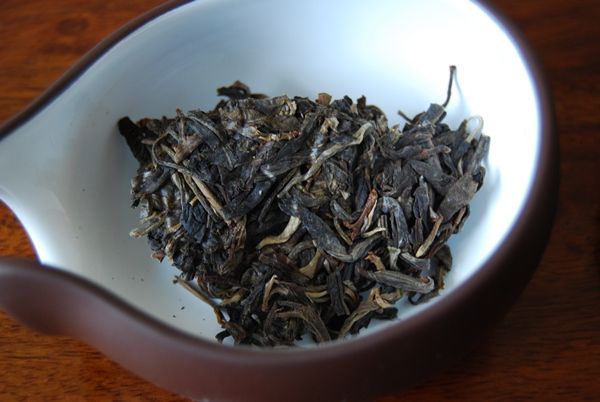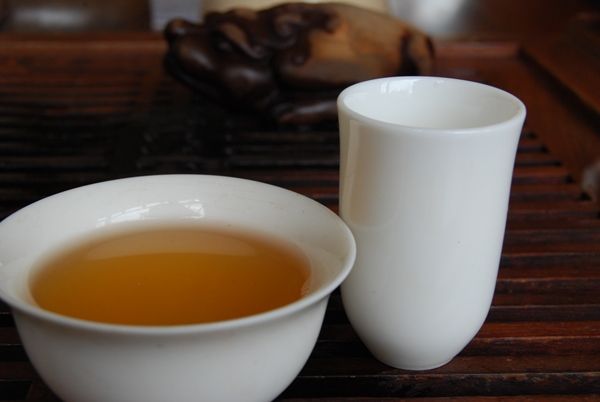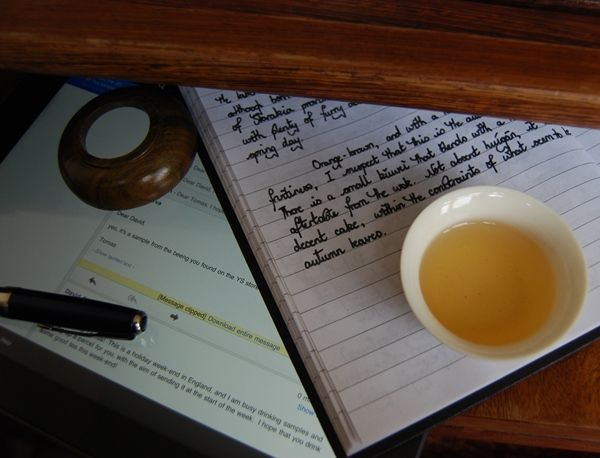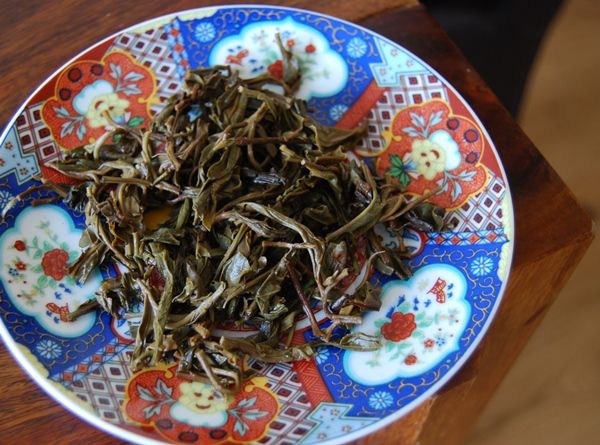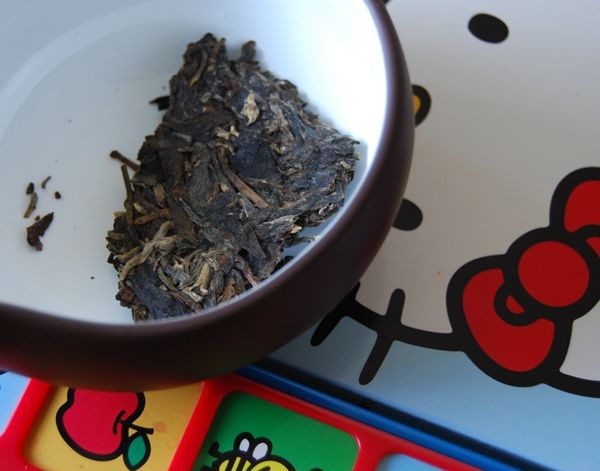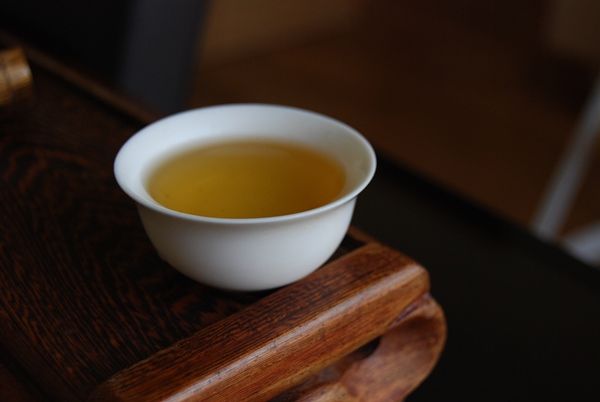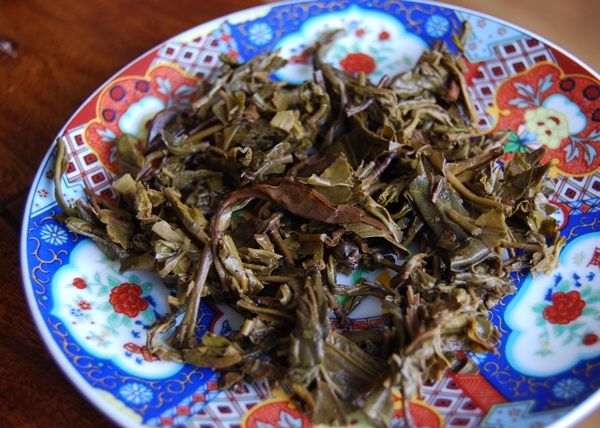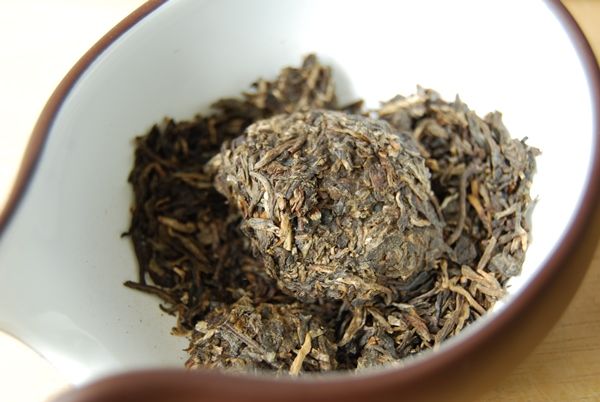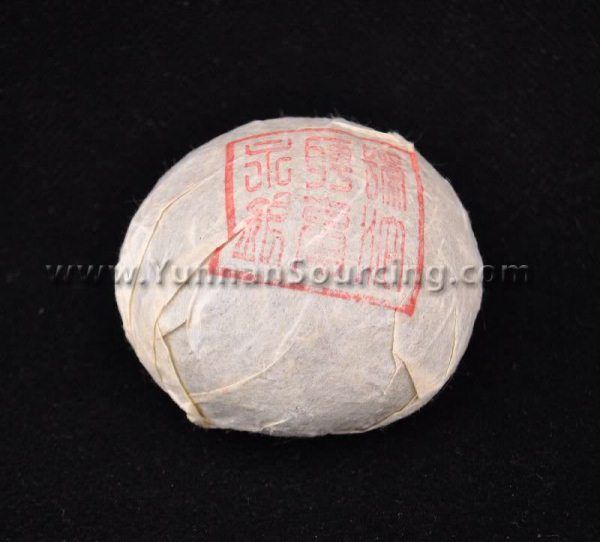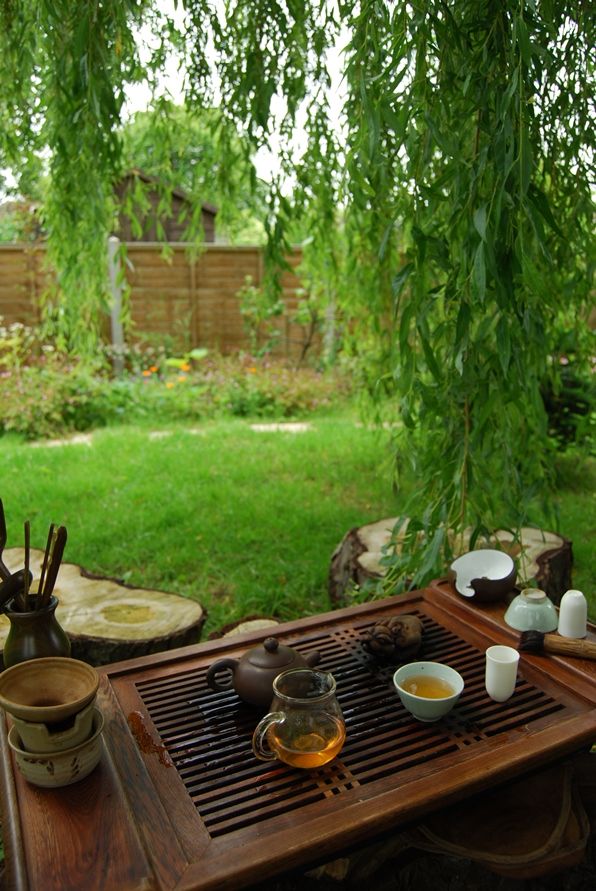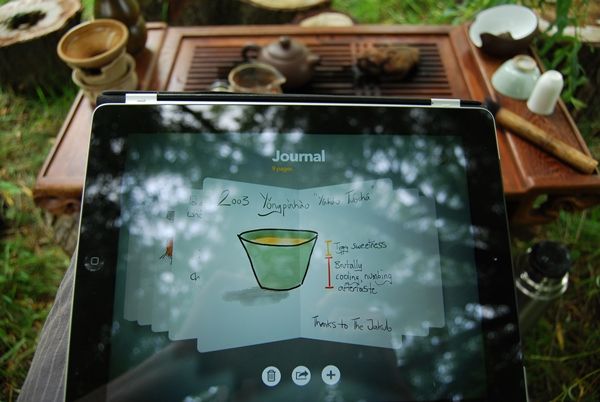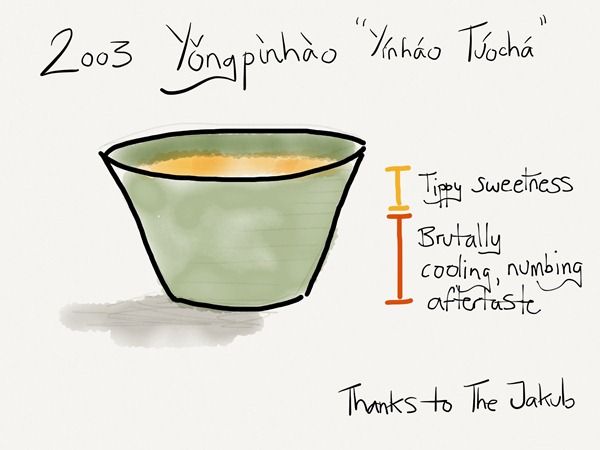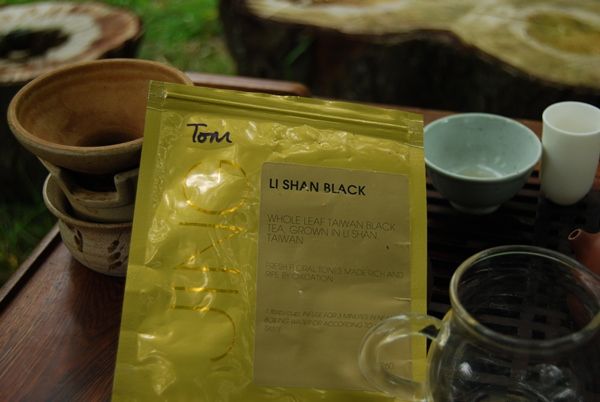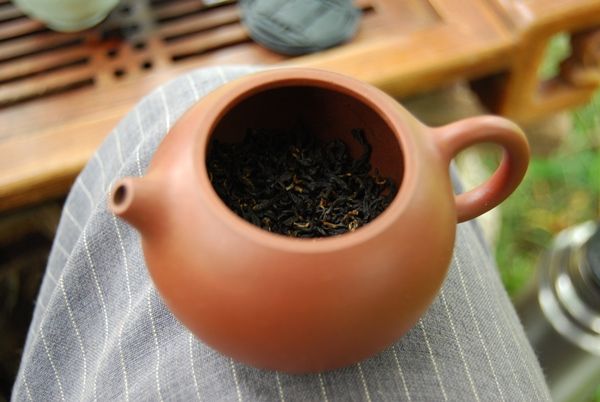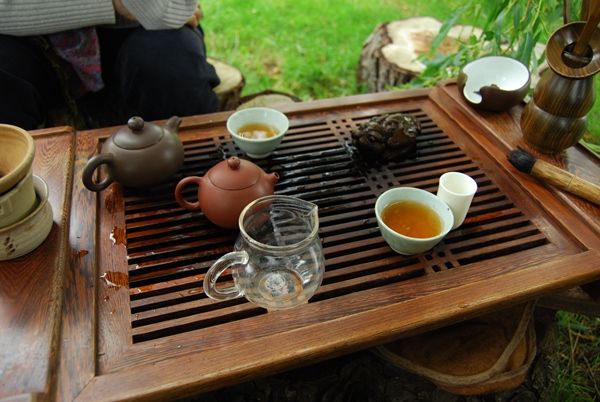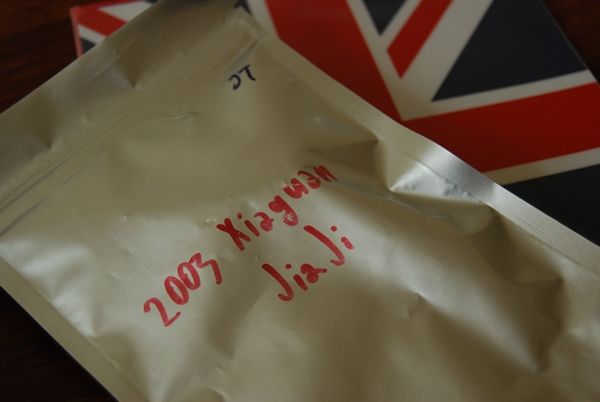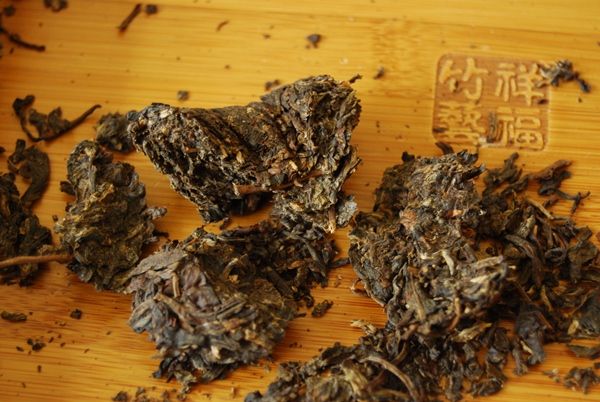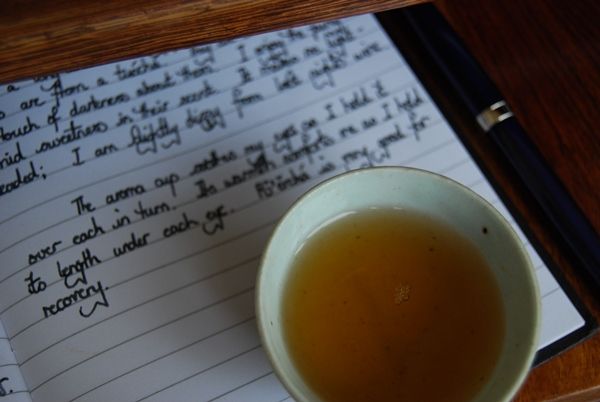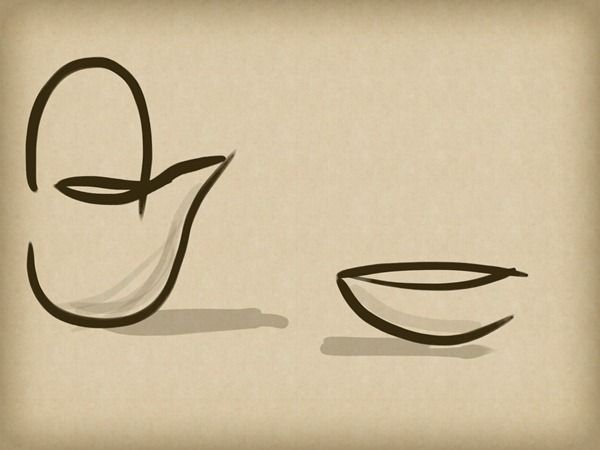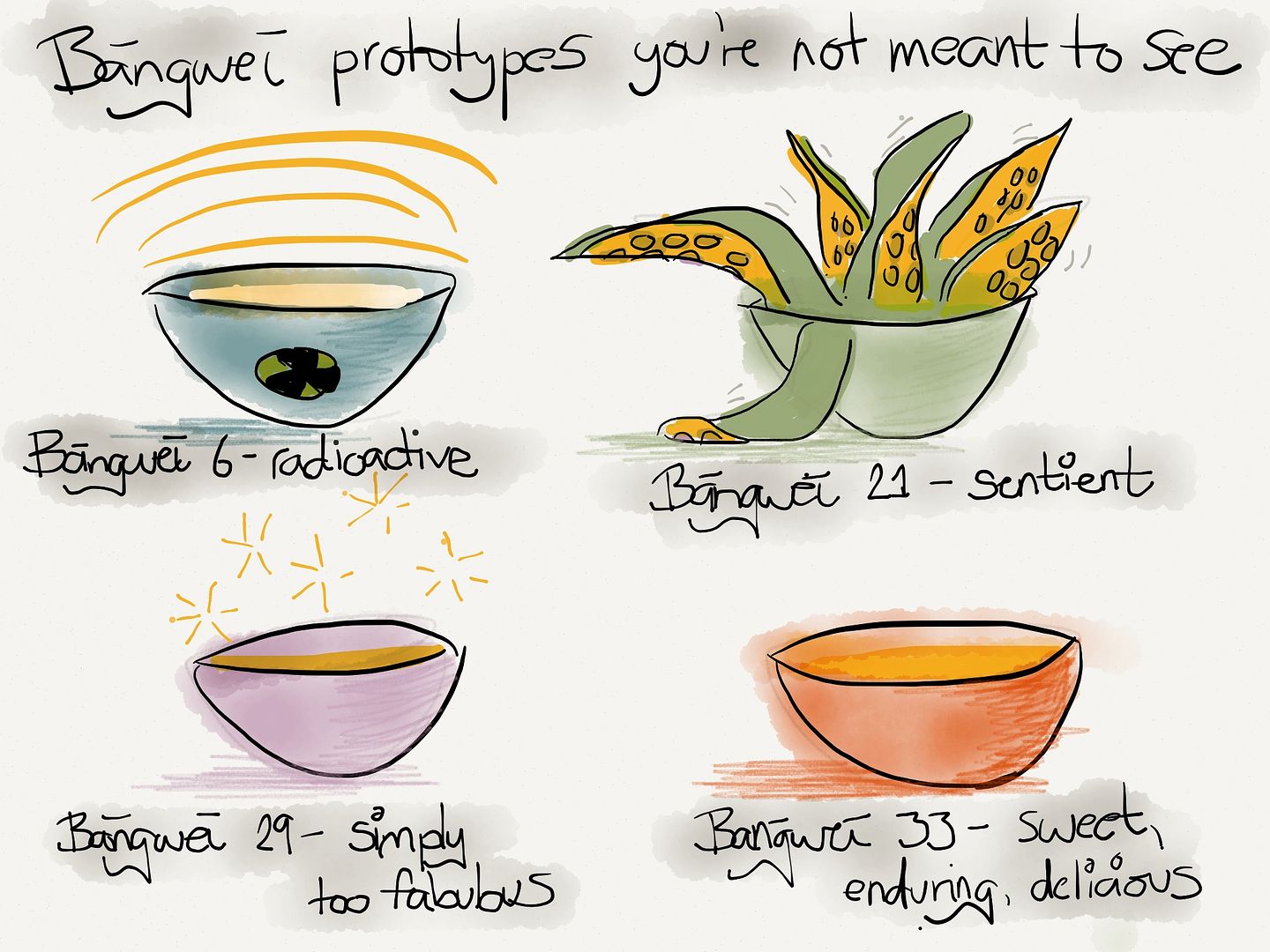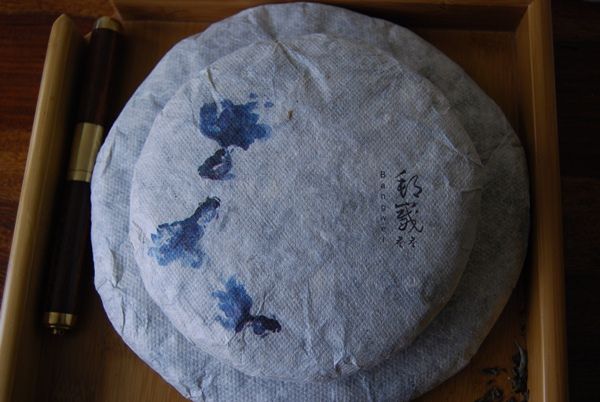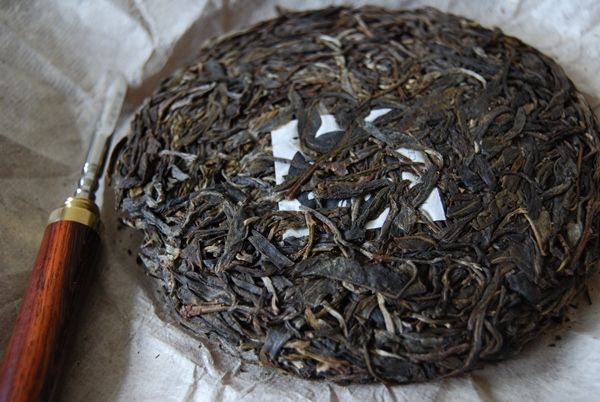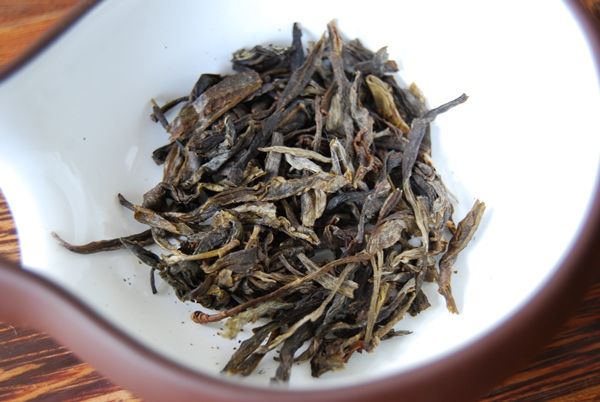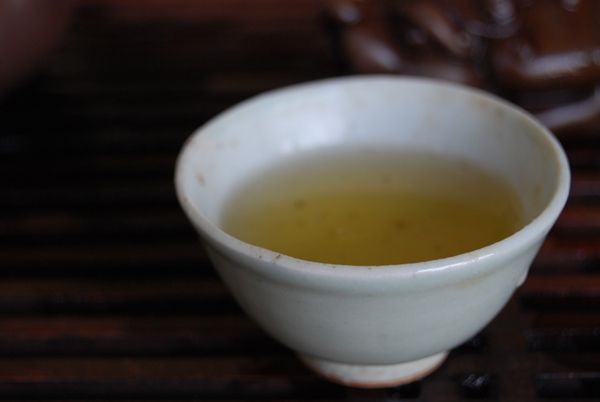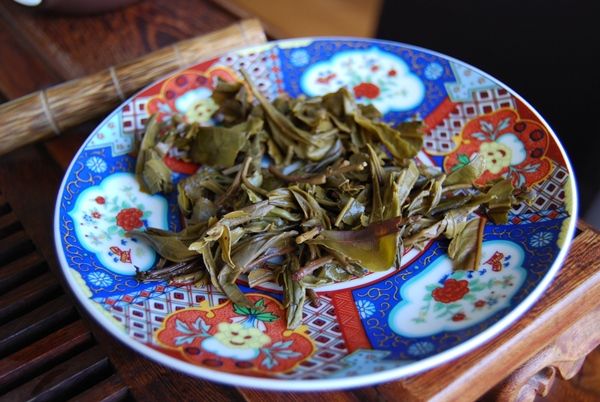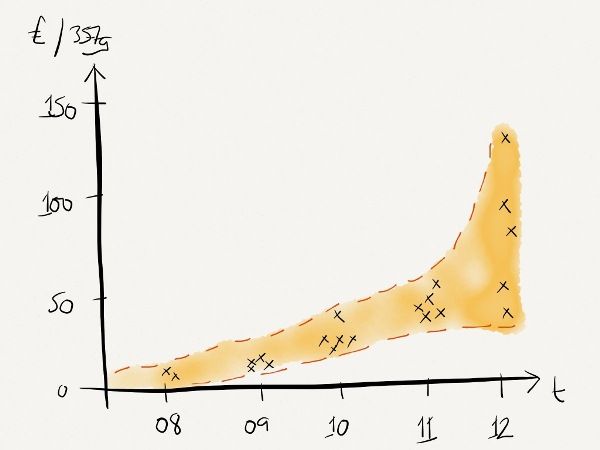All being well, we are still in San Diego. I leave you with notes on a cake that was really rather good.
---
I learned long ago never to underestimatethe Dark Side of the Force cakes from minor factories. Yes, they may have daft names, but even big factories are not immune from giving their cakes silly titles. Xizihao: I'm looking at you.
---
I learned long ago never to underestimate
This cake comes from the super-generous Kengmaster General, teachum in excelsis from Singapore. Mischievously, this cake reads "Menghai Qizibing" over the top. This is a commonly-committed felony, presumably an attempt to get the public to think something along the lines of "Menghai gud".
The amusing name of this cake is "Mijingchuanqi" [mee-jing-chooan-chee], which is positively Taiwanese in its faux-poesy: "sacred mysterious-place legend". My dear wife likens it to being "vulgar, like the computer game of a teenage boy". You can't get a worse put-down than that, ladies and gentlemen.
What is decidedly not vulgar, however, is the cake. Checks you out the above bingcha. What say you? Delicious indeed; sultry-looking, and almost louche. This is why minor-label teas with silly names should not be immediately disregarded. Just because the chap in the marketing department is terrible at naming cakes doesn't mean that the leaves are bad. If ever there were a case of not judging books by their covers, it must surely be pu'ercha, where even the most revoltingly-presented cake can turn out to be a gem.
Perhaps it is this "treasure hunting" aspect that contributes towards the appeal of pu'ercha. Yes, one can find some unknowable, anonymous, roasted wulong leaves in the back end of Mr. Miyagi's shop in the backstreets, but these delights are thin indeed compared with the thrill of finding pu'er cakes of considerable awesomeneity hidden among the dross of the marketplace. This is the case for your humble correspondent, at least.
This daftly-monikered cake comes with its usual blurb printed on the (oddly circular) neipiao, pictured above, and the authentication stamp, pictured below. Remember kids, if you're going to try to counterfeit minor-label cakes, then you've got to be thorough.
(Apache recently made me chuckle during a recent sesh, in which he produced a new Menghai cake along with a UV lamp that showed the latest in anti-counterfeiting technology on the neipiao and neifei of the cake. You know you're cool when you own your own UV lamp, and they don't come cooler than Apache. He's like a Chinese version of the Fonz. "What's the Fonz?" "Fonzie's cool.")
It almost seems criminal to break into this pretty cake, but break into it we must. I hack into it like an explorer making his way through jungle undergrowth. Like a fat man tearing his way into a particularly sugary confection. Like a lazy writer breaking into a particularly easy cliche.
The result is pictured below, in which the individual leaves may be seen to be furry, mostly whole, and very well-preserved. The company, Yangpinhao, is based in Jinghong, the capital of Xishuangbanna. There is an old pre-Communist brand of this name, which has clearly been appropriated by this more recent company. It is, therefore, somewhat cheeky that the wrapper claims that the company was founded in 1912. Such tactics are par for the course in the PRC. Don't get me started on the effects of the cultural revolution on institutional continuity.
The soup is a yellow-brown colour, as shown below, and I am impressed by an immediate and penetrating sweetness that brings shengjin [mouthwatering sensations]. It is green, clean, and not at all mean. I appreciate its very decent base of lower, mulled sweetnesses.
I wrote in my diary that it is "surprisingly good". It has a smooth, "soapy" character that sounds dreadful, but it actually very good: the texture is thick and slippery, above that base of green, sweet spiciness. Most impressively, it lasts well after the swallow. I appreciate its sheer endurance, which is correlated with those cakes that have gone on to age well in our collection.
This is a great example of why one should not discount cakes from a minor label. It is reasonably inexpensive ($56, according to Keng), and delivers a good amount of promise for that outlay. I look forward to seeing how this strong little cake proceeds in the coming years. It has opened the batting very well.

